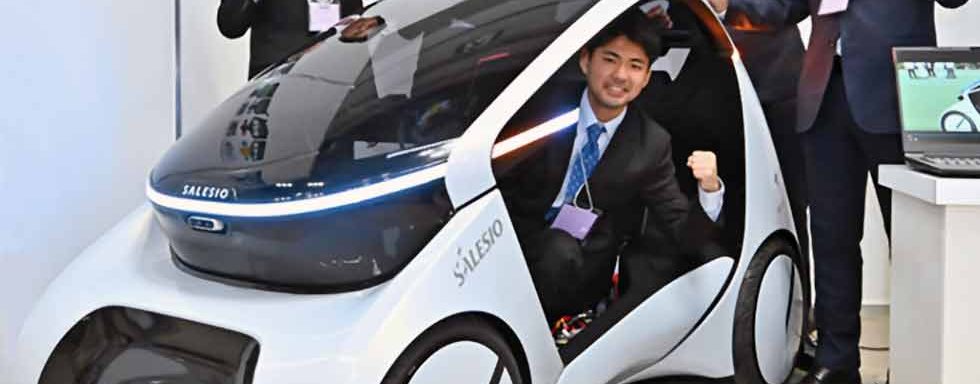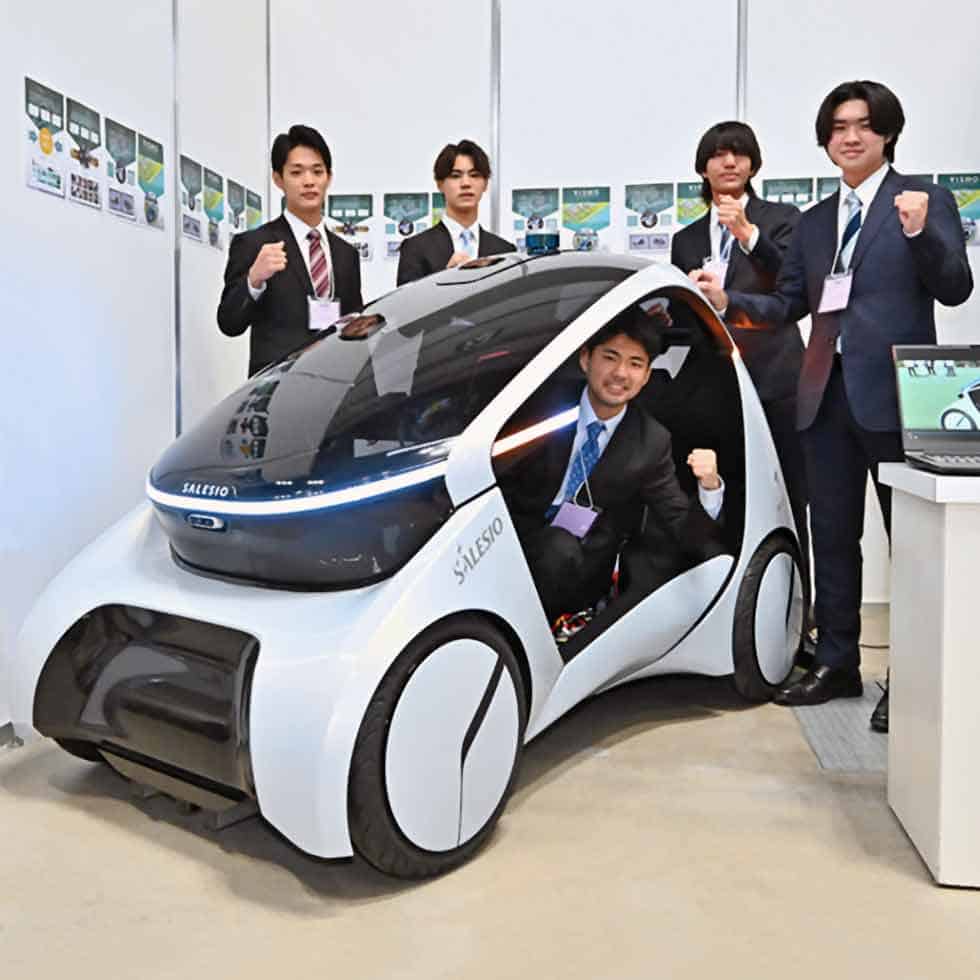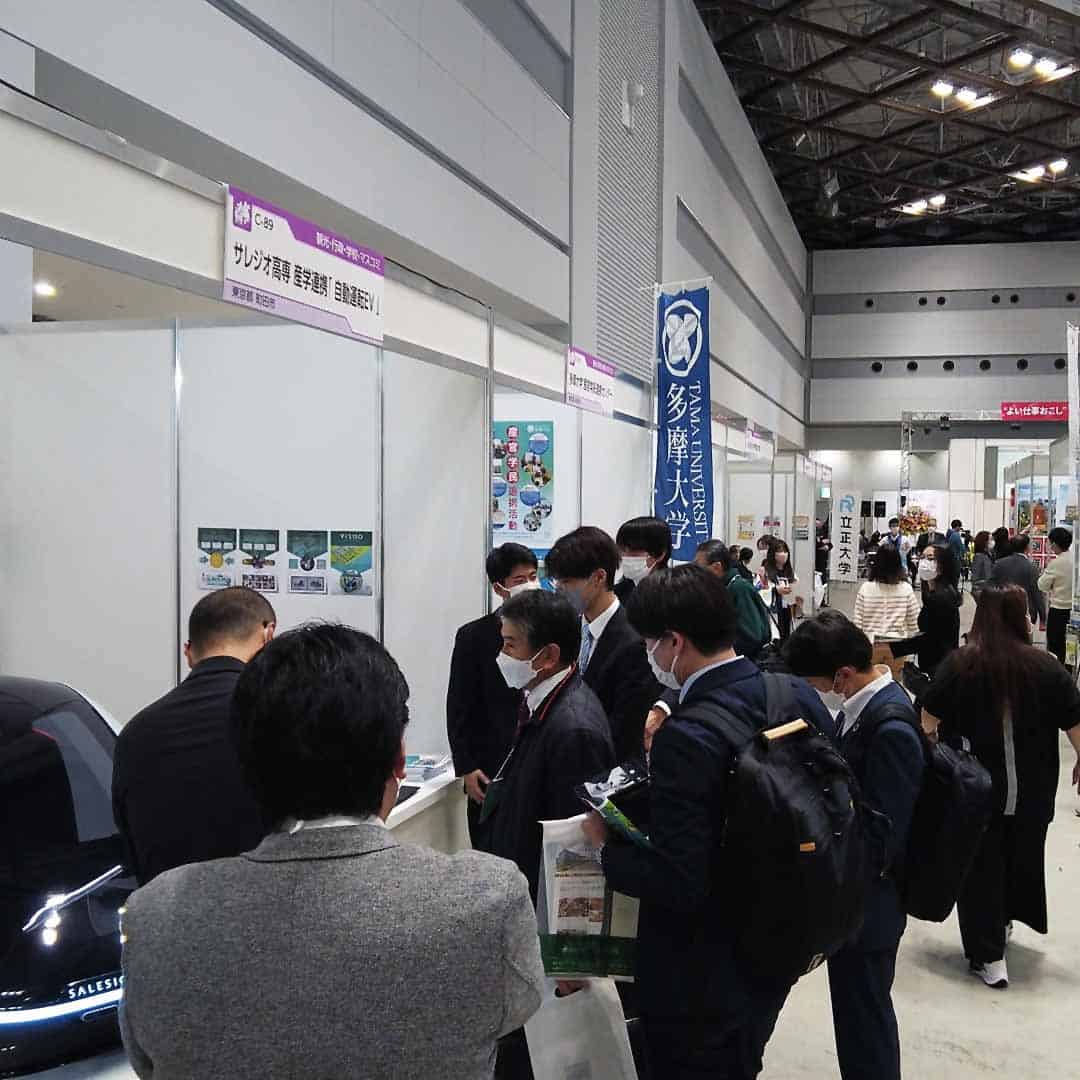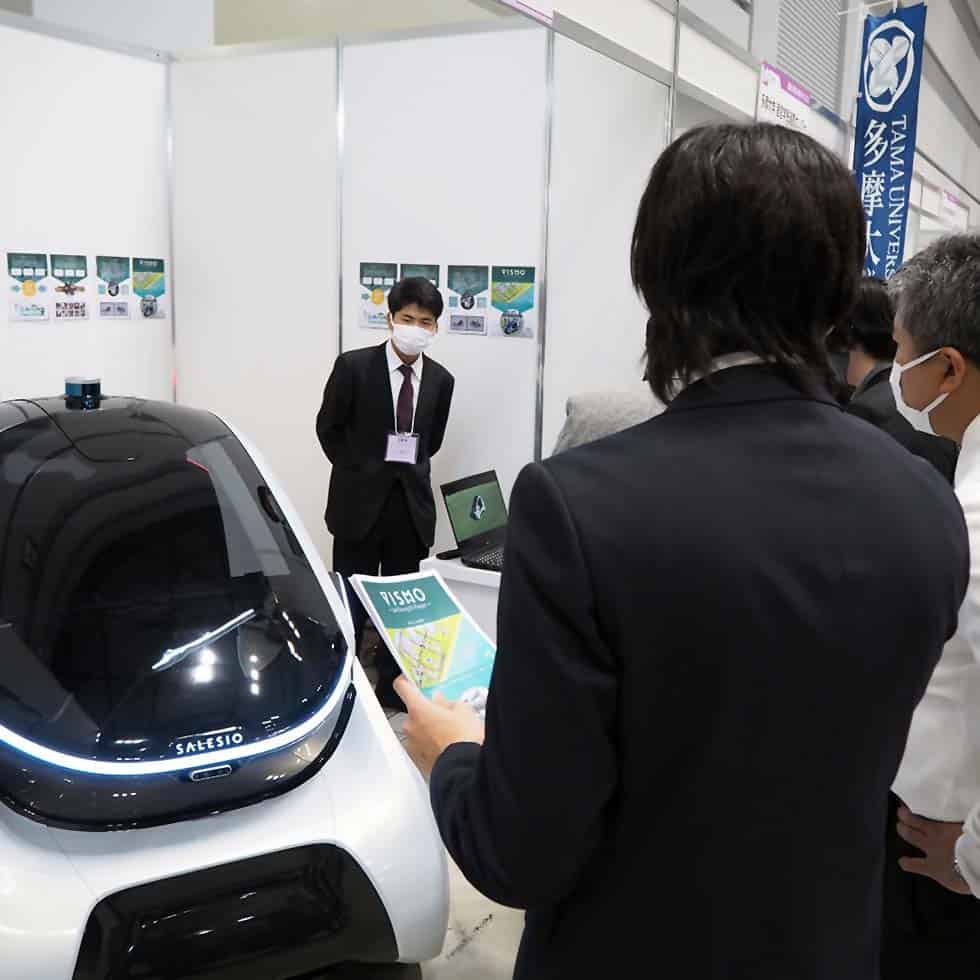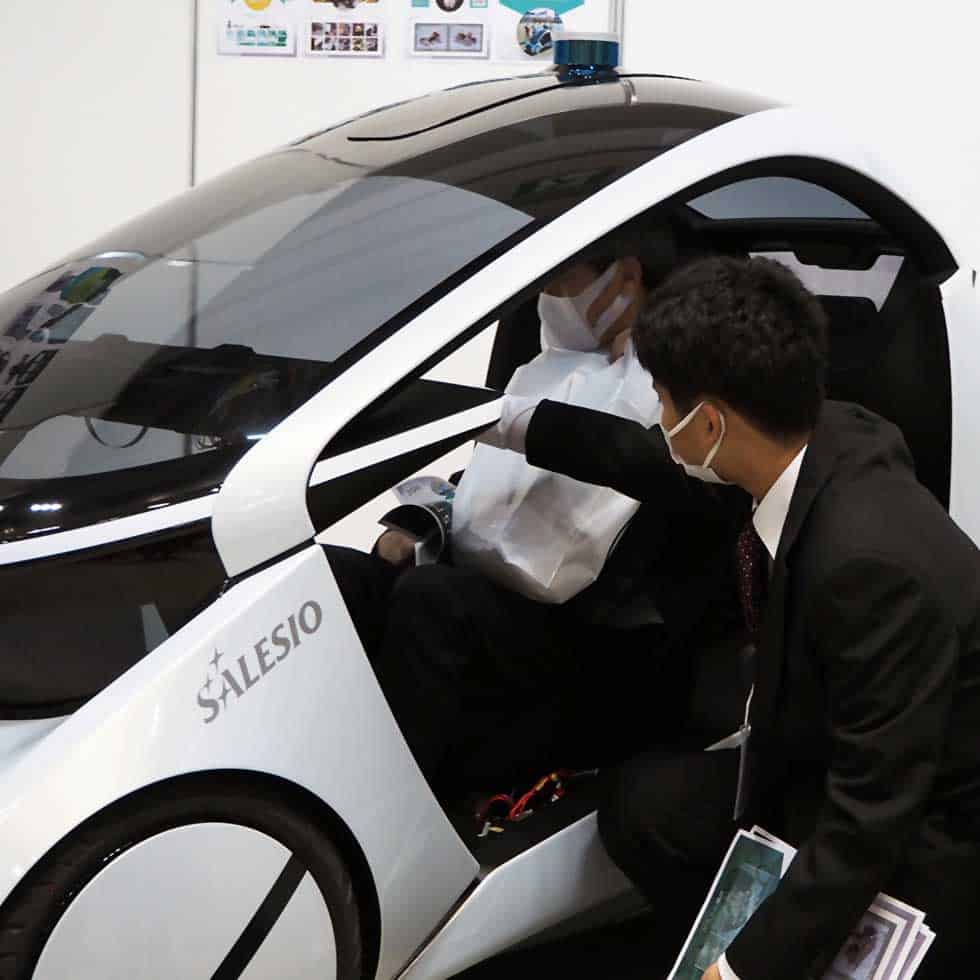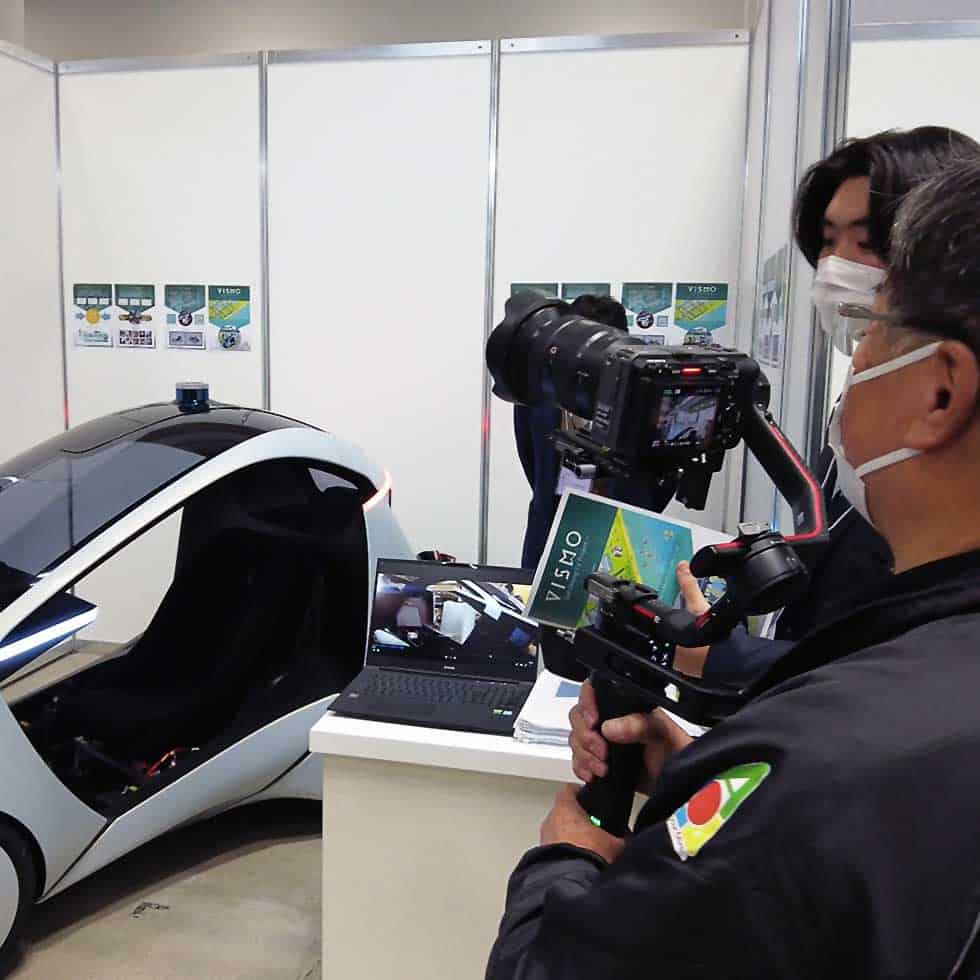(Salesian Polytechnic, Machida Tokyo) – The Salesian Polytechnic College of Technology is working on the development of self-driving electric vehicles (EVs) through industry-academia collaboration. The college is building a prototype of a compact EV that can seat one person, and will conduct test runs with some functions such as Level 3 autonomous driving. The prototype was unveiled for the first time at “2022 Good Job Fair” sponsored by Shinkin Bank. in Tokyo on the 6th of December, and the technical aspect of the steering part will be verified in the future.
The vehicle is approximately 2.1 meters in length and 1.1 meters in width, and is equipped with automatic driving technology using high-performance LiDAR sensors and stereo cameras, as well as four-wheel steering technology to enable agile driving. do.
Apex (Hachioji City, Tokyo), which manufactures prototypes, cooperated in the production of the vehicle, collaborating with external companies and graduates. It will also help reduce traffic issues with autonomous driving and reduce environmental issues with small EVs.
This is the Salesian College of Technology ‘s original “ autonomous driving EV (the name comes from VISION + MOBILITY ),” which is being developed by the Department of Electrical Engineering.
With the goal of reducing traffic and environmental issues, it is equipped with various sensing systems such as automatic control systems, SLAM, image recognition, and GPS. Current students are in charge of the design and development of the chassis, sensors, drive unit, and original parts, and the body is developed through industry-academia collaboration with companies through graduates.
It can be said that one of the great values of industry-academia collaboration is to give form to things that cannot be done by schools alone, or by companies alone, through collaboration.

